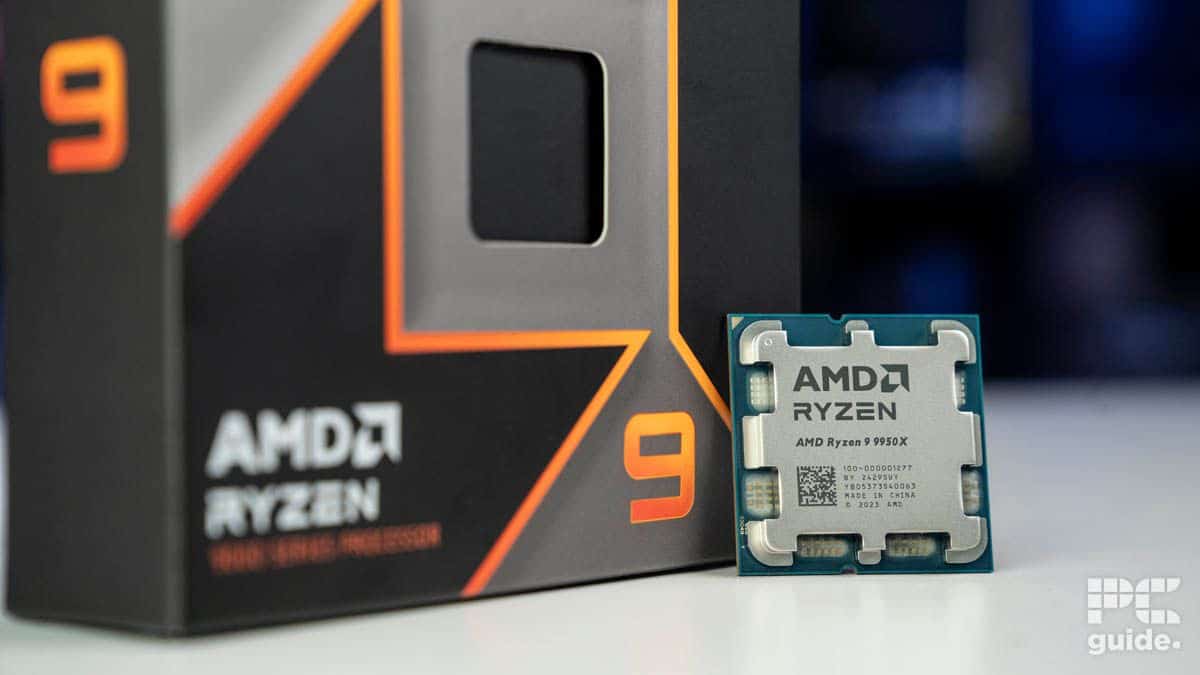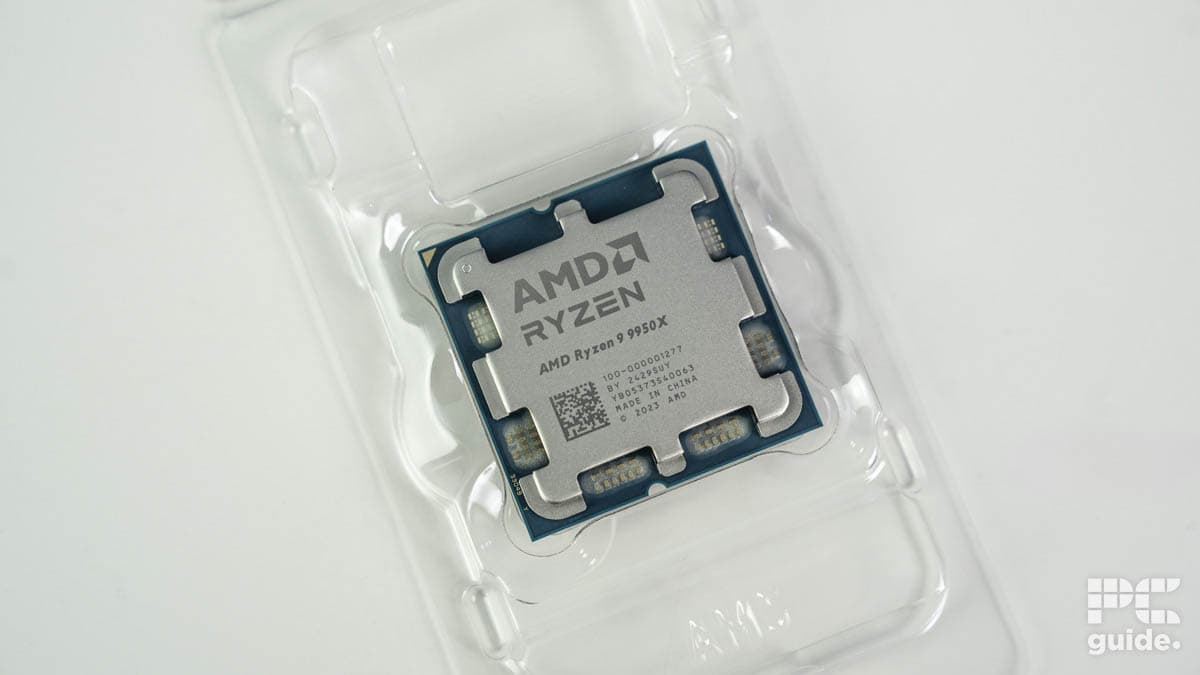Intel’s Core Ultra 9 285K may have the competition beat in everything except gaming

Table of Contents
It isn't surprising that Intel has made a big leap in generation-over-generation improvement, seeing how the Intel Core Ultra 9 285K has outperformed the AMD and 14th-generation flagship in multiple benchmark tests. It has beat the Ryzen 9 9950X, 14900K, 14900KF, and even the 14900KS.
So, the question is: Will the Ryzen 9000X3D processors stop the 285K's streak, or will the X3D series face defeat? According to multiple leaks, Intel held an internal meeting to showcase the 285K’s performance, and the situation is very interesting, to say the least.
Prime Day is finally here! Find all the biggest tech and PC deals below.
- Sapphire 11348-03-20G Pulse AMD Radeon™ RX 9070 XT Was $779 Now $739
- AMD Ryzen 7 7800X3D 8-Core, 16-Thread Desktop Processor Was $449 Now $341
- ASUS RTX™ 5060 OC Edition Graphics Card Was $379 Now $339
- LG 77-Inch Class OLED evo AI 4K C5 Series Smart TV Was $3,696 Now $2,796
- Intel® Core™ i7-14700K New Gaming Desktop Was $320.99 Now $274
- Lexar 2TB NM1090 w/HeatSink SSD PCIe Gen5x4 NVMe M.2 Was $281.97 Now $214.98
- Apple Watch Series 10 GPS + Cellular 42mm case Smartwatch Was $499.99 Now $379.99
- ASUS ROG Strix G16 (2025) 16" FHD, RTX 5060 gaming laptop Was $1,499.99 Now $1,274.99
- Apple iPad mini (A17 Pro): Apple Intelligence Was $499.99 Now $379.99
*Prices and savings subject to change. Click through to get the current prices.
285K looks great in single-core and multi-core benchmarks
The first thing to consider is that the leaked benchmark results for the 285K come from engineering samples, as the CPU hasn't been released. Synthetic benchmarks don't necessarily translate to real-world performance, but they do help us gauge how they could potentially perform against each other.
Until now, the 285K seems to have great synthetic performance in software like Geekbench, V-Ray, and Cinebench, which utilize scripts to simulate different scenarios and workloads.
So, considering its single and multi-core performance, it seems like it has good gaming and professional performance. That is impressive given that it consumes less power than the 14900K and has one threat per core, totaling only 24 threads against 14900K and 9950X's 32 threads.
However, there is much more to consider than just a simple single-core benchmark result. That said, games generally make the best use of single-core, and that is why single-core performance is looked at to determine a processor’s gaming capabilities. This brings us to the question of whether it'll be able to take on the Ryzen 9000X3D processors or fall short.
According to a leak from CodeCommando on X, the Cinebench R23 results for the 9800X3D and 9950X3D are live and are outperforming the Ryzen 9 7950X3D. However, that isn't the best matchup, as the 7950X3D still uses CCD whenever it can, bringing down its in-game performance.
I looked up 285K's Cinebench results to see how it fared, and it seems like it beat the Ryzen 9000X3D processors. To give you an idea, here are the scores:
| Processor | Cinebench single-core score | Cinebench multi-core score |
|---|---|---|
| Intel Core Ultra 9 285K | 2,601 | 43,118 |
| Ryzen 9 9950X3D | 2,245 | 42,475 |
| Ryzen 7 9800X3D | 2,145 | 23,315 |
So, the performance difference between these two AMD processors and the 285K is significant, especially the single-core score. However, before you decide to skip the 9000X3D lineup, there is more to this story, which makes it even more interesting.
X3D will ensure the 9000 series remains relevant for gaming
Circling back to the internal meetings that Intel was holding, there are also leaks of that, and according to a leak from wxnod on X, Intel's internal testing has rated the Core Ultra 9 285K marginally lower in gaming compared to the 14900K.
This might come as a shock, but it might be due to the lower TDP and thread count. In one slide, we can see that the average FPS of a couple of games comes to around 261 FPS for the 285K and 264 FPS for the 14900K. A difference of 3 FPS isn't anything to boast about, but the main aspect to consider is that the 285K consumes 447W compared to 14900K's 527W, which is a difference of 80W.
So, if anything, it is impressive that the Core Ultra 9 CPU was able to almost catch up to the 14900K in gaming but fell just a little short. That said, for tech enthusiasts, it might be a deal breaker because everyone expects the next generation of processors to completely obliterate the previous CPUs in gaming and professional workflows. However, as we saw, that isn't always the case.
Now we know that the 285K is slower than the 14900K and that allows us to make somewhat of a comparison of how it'll do in gaming against the 9000X3D CPUs. Here is how we'll do that. We've tested the 14900K and Ryzen 9 9950X in-house for their respective reviews, which includes gaming benchmarks.
| CPU | Cyberpunk 2077 |
|---|---|
| Intel Core i9-14900K | 219 FPS |
| AMD Ryzen 9 9950X | 319 FPS |
One good example is Cyberpunk 2077; we tested both CPUs at 1080p low settings paired with an RTX 4070 Ti. We also tested the Intel Core i9-14900K in Counter-Strike 2 at 1080p high settings, and it managed 336 FPS.
So, just by looking at this, we can see that Team Red's flagship is better at gaming than the 14900K. Looking at the past releases, we've seen that the X3D processors outperform their base and “X” variants in gaming due to the 3D V-Cache technology. So, once something like the 9800X3D comes along, it should be above and beyond what something like the 285K can provide.
Will X3D CPUs be even more in demand?
While this may be good news for some, a company having a monopoly over a single market segment is never great, and according to TechEpiphany, the Ryzen X3D processors are seeing a dramatic price spike. This could be due to the lack of expected competition, and healthy competition between companies is always nice; it keeps the prices low while delivering good-quality products.
That said, the main takeaway is that the benchmarks we see online don't tell the complete picture, especially if the CPU hasn't even been released. But looking at how the situation is developing, with even Intel seemingly admitting that the 285K's gaming performance isn't extraordinary as the other benchmark results pointed toward, I think it’s safe to assume that the Ryzen 9000X3D processors have nothing to worry about, and the title for the best gaming CPUs will remain with AMD for the foreseeable future.


